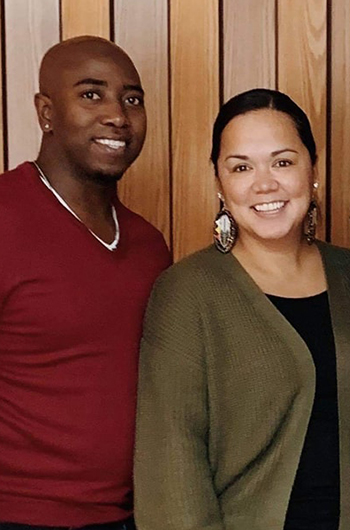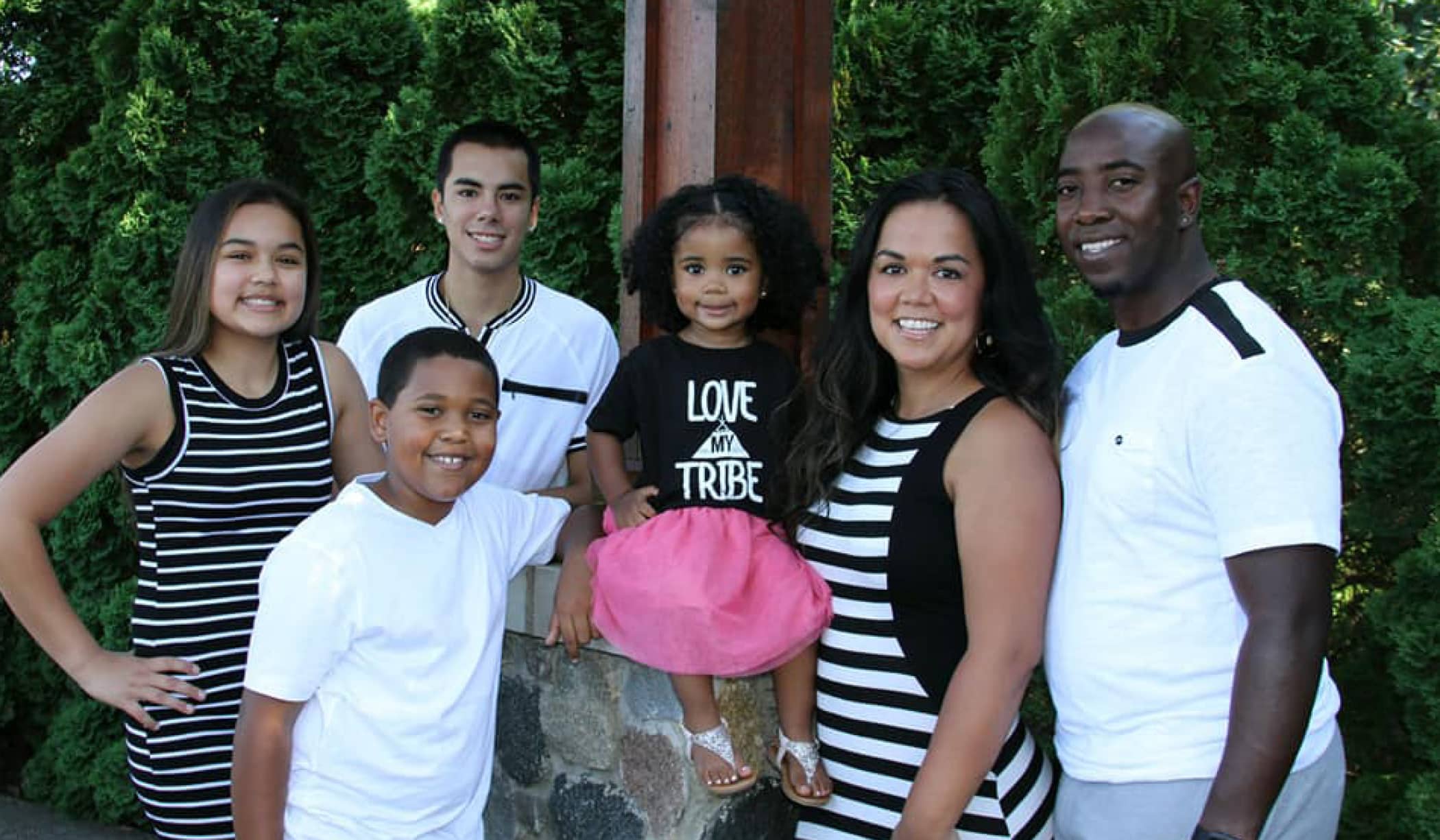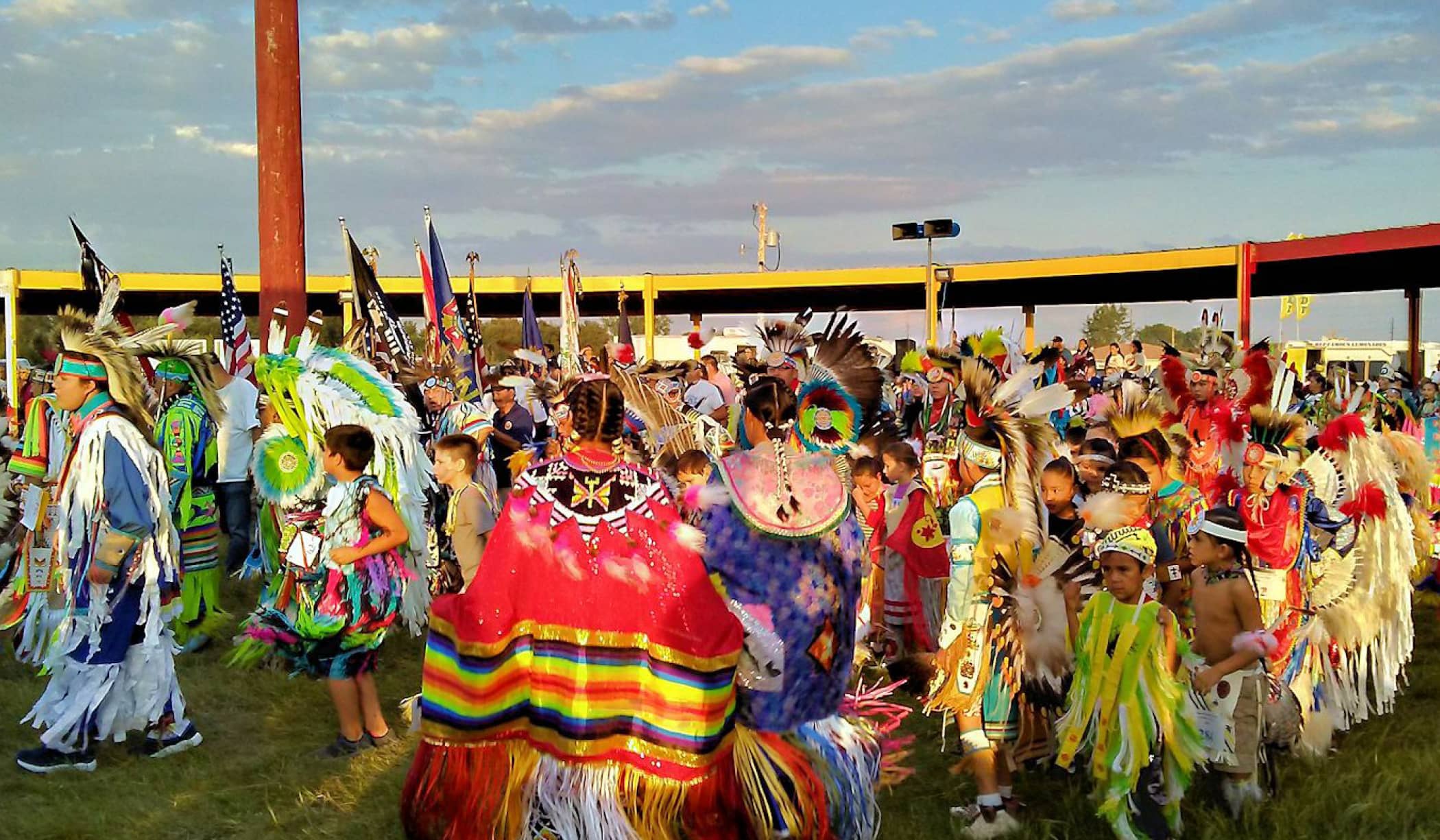Interview with Roger and Anna Ross, planters of Epiphany Covenant – Turtle Mountain
 Roger and Anna Ross are planting Epiphany Covenant – Turtle Mountain, a network church located in northern North Dakota. November is Native American Heritage Month, and in a recent interview the couple shared insights on the challenges and opportunities facing American Indian people.
Roger and Anna Ross are planting Epiphany Covenant – Turtle Mountain, a network church located in northern North Dakota. November is Native American Heritage Month, and in a recent interview the couple shared insights on the challenges and opportunities facing American Indian people.
Tell us a little about you, your family, your call.
Roger: I was born and raised in Denver, CO, and moved to Kansas when I was recruited to play football for the University of Kansas. I lived in KS for over 15 years. After getting married I moved to North Dakota and lived on my wife’s reservation.
We have been married for 10 years and we have four beautiful children. After a year of marriage, my wife and I moved to Minneapolis where we lived for eight years. In January 2018, I began to feel an overwhelming call to leave our lives in the Twin Cities and return to the Turtle Mountain Indian Reservation to start a church—and after much discussion, my family moved back to North Dakota that summer.
What can you help us understand about the history of others in your context?
Roger: The people of the Turtle Mountain Indian reservation have a history of hurt from various religions and denominations sent here to “save” the American Indian people. My observation now is that this community is a combination of people practicing Catholic faith and people trying to find spirituality and healing.

As a church, the ECC is endeavoring to repudiate something called the “Doctrine of Discovery.” What can you tell us about the impact of the DoD on your community?
Anna: The Doctrine of Discovery was created to give justification for taking and colonizing any land not inhabited by “Christians.” How did this impact my tribe? My community? My people? Well … that is a loaded question!
The DoD supported the dehumanization of Native people living on those lands and forced assimilation by any means necessary—including rape and murder. This is not history that just goes away, it continues to impact generations of people within Native communities.
How are families impacted when young men or boys are sent to boarding school, murdered or imprisoned? If they survive and are eventually able to return to their families, the traditional training and ceremonies to transition them into manhood have been lost. They no longer understand their traditional tribal family structure.
The women in the families are often forced to take on new roles while dealing with their own trauma they might’ve faced. These things completely alter the fabric of a community, and new “norms” are created that are often very destructive. This is just ONE example of how the DoD has impacted our people.
The Doctrine of Discovery is a symbol of destruction to the Indigenous people of this country. Destruction that came from people who did horrible things in the name of “Christianity.” If we, as a church, do not take a stand but still expect to make an impact in tribal communities, we are just spinning our wheels.
The ECC needs to make a large statement in order to regain not only the trust of American Indian people, but also to those in other communities of color. Scholars believe that the Doctrine of Discovery fueled white supremacy insofar as white European settlers claiming to be instruments of divine design and possessing cultural superiority.
Is this what we stand for? Sometimes a wound has to be reopened before it can properly heal. We cannot continue to ignore this or act as though this doesn’t exist.

What do you love about the context in which you live? How does that help you to experience God in a unique way?
Roger: I love living in this community because I am not only learning about the history of what American Indian people have endured for centuries, but I am also constantly reminded of the hope and resiliency of these people.
God created these people who have an unbelievably beautiful culture. For decades, the government and various religions have shared a mission to take that culture away.
What do you see as important needs in your community or about those in your context?
Roger: Our community has several needs. This reservation has an unemployment rate which exceeded 60 percent pre-pandemic. The tribe and a few other outside entities have addressed food shortages with food pantries, food drives and soup kitchens.
One immediate need that I see right now is winter gear for those cold North Dakota winters; hats, gloves, scarfs and winter coats.
Are you part of a particular association or ethnic-specific part of the ECC? What can you tell us about that? What do you enjoy about being a part of this community?
Roger: I am a part of the African American and Native American groups within the ECC. As a Black man, it has been great having the support and encouragement from both groups. My wife is also a part of the Native American group and has found connections and family who continue to encourage and support her as well.
What resources would you recommend for those who want to learn more?
- “Unsettling Truths: The Ongoing, Dehumanizing Legacy of the Doctrine of Discovery” by Mark Charles and Soong Chan-Rah
- “Everything You Wanted to Know about Indians but Were Afraid to Ask” by Anton Treuer
- 9 Books for Native American Heritage Month
- Turtle Mountain Band of Chippewa Indians website
- Turtle Mountain Community College
Christian Action Commission (CAC), with the support of the Mosaic Commission and LMDJ, will be presenting a resolution in June at Gather 2021, regarding the repudiation of the Doctrine of Discovery.
Want to learn more about the Doctrine of Discovery? Here are two ways you can do that:
- Take this survey to help us gauge where our denomination is on this topic.
- Join a panel discussion on Tuesday, Nov. 24, at 2:30 p.m. We will be hearing stories about the Doctrine of Discovery’s direct impact from some of our Indigenous brothers and sisters. To join us for this webinar, please register here.